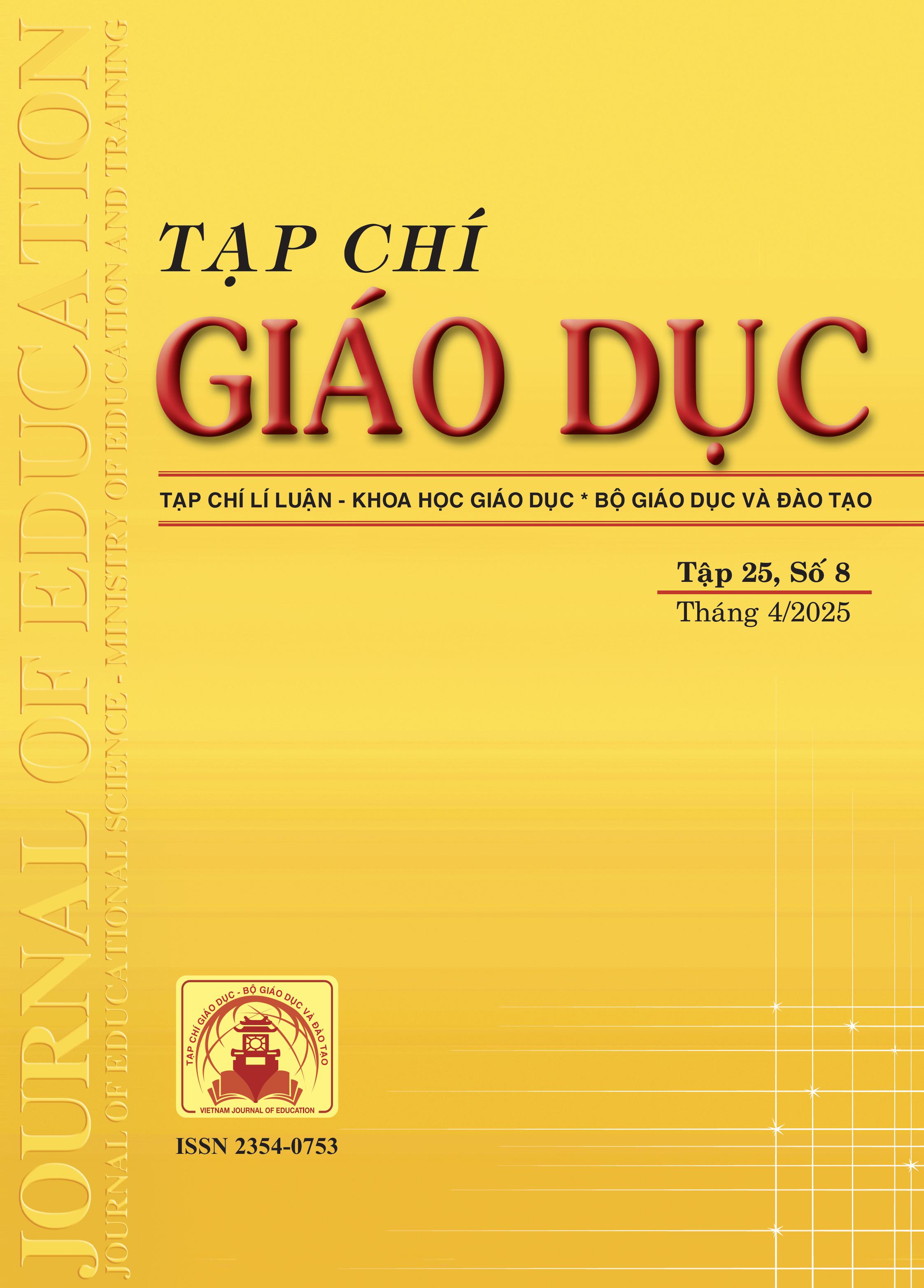Thực trạng học tập và xu hướng nghề nghiệp của học sinh trung học phổ thông người dân tộc thiểu số trong bối cảnh chuyển đổi số
Tóm tắt
Digital transformation has introduced new trends in labor market demands, with a strong focus on technology-related fields. However, adapting to these emerging career trends remains a challenge for the workforce in Vietnam, especially in ethnic minority areas. Using desk research, a survey of 698 students and 169 teachers and school administrators, as well as in-depth interviews with 8 students from ethnic boarding high schools across 8 provinces, this study highlights the difficulties ethnic minority high school students face in their education, academic orientation, and career choices. These challenges include inadequate infrastructure, limited family awareness, and students' lower academic performance. Notably, their career choices are primarily centered on traditional fields, influenced by their living environment and family occupational habits. Therefore, to help these students select careers that align with the new career trends, it is crucial for all stakeholders to collaborate in raising awareness about the importance of education and vocational training in technology-related fields.
Tài liệu tham khảo
Huỳnh Văn Sơn (2011). Xu hướng chọn nghề nghiệp của học sinh cuối cấp trung học cơ sở và học sinh trung học phổ thông tỉnh Bình Dương hiện nay. Tạp chí Khoa học, Trường Đại học Sư phạm Thành phố Hồ Chí Minh, 31, 125-131.
Makola, Z. S., Saliwe, P., Dube, I., Tabane, R., & Mudau, A. V. (2021). High school learners views on benefits derived from attending career talks: Need for sound career guidance. The Journal for Transdisciplinary Research in Southern Africa, 17(1), 1-8. https://doi.org/10.4102/td.v17i1.1082
Nguyễn Ngọc Ánh, Nguyễn Kiều Lan Thương (2018). Giáo dục Việt Nam: Thực trạng, cơ hội và thách thức. Tạp chí Giáo dục lí luận, 279, 54-60.
Nguyễn Thị Bích Thủy (2019). Bình đẳng giới trong lĩnh vực lao động, việc làm của người dân tộc thiểu số ở Việt Nam. Tạp chí Nghiên cứu dân tộc, 8(4), 9-17.
Nguyễn Thị Lan (2020). Đào tạo nguồn nhân lực chất lượng cao phục vụ phát triển KT-XH vùng đồng bào dân tộc thiểu số và miền núi. Tạp chí Nghiên cứu dân tộc, 9(4), 7-12.
Roy, S., Salve, A. R., Shah, J. A., Kadam, S., Muda, I., & Dash, M. (2022). Artificial Intelligence Based Rural E-Commerce Boosting Using Big Data. 2022 5th International Conference on Contemporary Computing and Informatics (IC3I), 2087-2093. https://doi.org/10.1109/IC3I56241.2022.10073248
Trần Trung, Phạm Đức Bình, Nghiêm Thị Thanh, Lã Phương Thúy (2020). Các công nghệ nền tảng của Cách mạng công nghiệp 4.0 và tác động đến phát triển nhân lực dân tộc thiểu số ở Việt Nam. Tạp chí Khoa học Giáo dục Việt Nam, 30, 22-28.
Ủy ban Dân tộc, Tổng cục Thống kê (2019). Kết quả điều tra thu thập thông tin về thực trạng kinh tế - xã hội của 53 dân tộc thiểu số năm 2019. NXB Thống kê.
Wong, L. P. W., & Yuen, M. (2019). Career Guidance and Counseling in Secondary Schools in Hong Kong: A Historical Overview. Journal of Asia Pacific Counseling, 9(1), 1-19. https://doi.org/10.18401/2019.9.1.1
Tải xuống
Đã Xuất bản
Cách trích dẫn
Số
Chuyên mục
Giấy phép

Tác phẩm này được cấp phép theo Ghi nhận tác giả của Creative Commons Giấy phép quốc tế 4.0 .












